- Home
- Andy McNab
Red Notice
Red Notice Read online
About the Book
Deep beneath the English Channel, a small army of Russian terrorists has seized control of the Eurostar to Paris, taken four hundred hostages at gunpoint – and declared war on a government that has more than its own fair share of secrets to keep.
One man stands in their way. An off-duty SAS soldier is hiding somewhere inside the train. Alone and injured, he’s the only chance the passengers and crew have of getting out alive. Meet Andy McNab's explosive new creation, Sergeant Tom Buckingham, as he unleashes a whirlwind of intrigue and retribution in his attempt to stop the terrorists and save everyone on board – including Delphine, the beautiful woman he loves.
Hurtling us at breakneck speed between the Regiment’s crack assault teams, Whitehall’s corridors of power and the heart of the Eurotunnel action, RED NOTICE is McNab at his devastatingly authentic, pulse pounding best.
RED NOTICE: You have been warned…
Contents
Cover
About the Book
Title Page
Prologue
Chapter 1
Chapter 2
Chapter 3
Chapter 4
Chapter 5
Chapter 6
Chapter 7
Chapter 8
Chapter 9
Chapter 10
Chapter 11
Chapter 12
Chapter 13
Chapter 14
Chapter 15
Chapter 16
Chapter 17
Chapter 18
Chapter 19
Chapter 20
Chapter 21
Chapter 22
Chapter 23
Chapter 24
Chapter 25
Chapter 26
Chapter 27
Chapter 28
Chapter 29
Chapter 30
Chapter 31
Chapter 32
Chapter 33
Chapter 34
Chapter 35
Chapter 36
Chapter 37
Chapter 38
Chapter 39
Chapter 40
Chapter 41
Chapter 42
Chapter 43
Chapter 44
Chapter 45
Chapter 46
Chapter 47
Chapter 48
Chapter 49
Chapter 50
Chapter 51
Chapter 52
Chapter 53
Chapter 54
Chapter 55
Chapter 56
Chapter 57
Chapter 58
Chapter 59
Chapter 60
Chapter 61
Chapter 62
Chapter 63
Chapter 64
Chapter 65
Chapter 66
Chapter 67
Chapter 68
Chapter 69
Chapter 70
Chapter 71
Chapter 72
Chapter 73
Chapter 74
Chapter 75
Chapter 76
Chapter 77
Chapter 78
Chapter 79
Chapter 80
Chapter 81
Chapter 82
Chapter 83
Chapter 84
Chapter 85
Chapter 86
Chapter 87
Chapter 88
Chapter 89
Chapter 90
Chapter 91
Chapter 92
Chapter 93
Chapter 94
Chapter 95
Chapter 96
Chapter 97
Chapter 98
Chapter 99
Chapter 100
Chapter 101
Chapter 102
Chapter 103
Chapter 104
Chapter 105
Chapter 106
Chapter 107
Chapter 108
Chapter 109
Chapter 110
Chapter 111
Chapter 112
Chapter 113
Chapter 114
Chapter 115
Chapter 116
Chapter 117
Chapter 118
Epilogue
About the Author
Also by Andy McNab
Copyright
RED NOTICE
Andy McNab
Prologue
Borjomi, Georgia
25 September 1996
05.17 hrs
Dawn had begun to streak the eastern sky as the two mud-spattered trucks inched their way up the road in the faint glow from their sidelights. They jolted over rain-filled potholes and scree and came to a halt just short of the crest of the hill.
Their movements measured and cautious, a dozen armed men climbed down from the rear of each vehicle. Their breath billowed around them in the freezing air. Checking their safety catches, they stamped their feet to restore circulation and eased the stiffness from their legs. Some placed a last cigarette in the middle of their week-old beards and lit up.
They checked their equipment, ensuring pouches were still secure. If it had a button or a Velcro strip, it was there to be fastened. Two of the team struggled to hoist heavy weapons systems onto their shoulders.
Their commander stood a short distance apart from his men. Laszlo had an aversion to the smell of nicotine. He wore the same stained camouflage fatigues as his troops and had a similarly Slavic cast to his features, complete with coarse, almost black beard, but carried himself with an arrogance they didn’t share. He was just short of six feet in height, but his sinuous limbs and slim frame made him look taller. His mouth was downturned and his eyes were the washed-out grey-blue of a winter sky; his skin was so pale he looked as if he’d lived his life in permanent shadow.
Another man exited the cab of the nearest truck. Laszlo’s cool gaze missed nothing as he approached. The newcomer’s civilian clothes were of a cut and quality that were neither cheap nor local. He wasn’t a Slav, he was from the West. Europe? The USA? It was hard to tell. They all looked the same. His brown hair was starting to grow out from its short back and sides, and he, too, had a good week’s growth on his chiselled jaw.
The man might not have been one of Laszlo’s team, but the comfortable way he held his AK, the folding butt closed down in his hand as if it were a natural extension of his body, showed that he was no stranger to shot and shell. The weapon – all of his equipment – was also of Soviet origin. In Yeltsin’s Russia, there was no shortage of underworld gangs willing to steal and trade such things, or of corrupt officers happy to empty their armouries in return for cold, hard cash.
The man had no fear of repercussion from what he was about to do. There would be nothing to suggest this had been anything but a purely local affair. He was sterile of ID and personal documentation. Like the rest of the team, it was as if he didn’t exist. He had a name – Marcus – but Laszlo knew it wasn’t his own. The team commander had taken steps to discover his companion’s real identity. Information was a commodity to be traded, like drugs, weapons and women, and Laszlo always liked to bargain from a position of strength.
He stood for a couple more minutes, watching the new day creep across the landscape. To his right, a steep, boulder-strewn slope tumbled to a fast-flowing river. Water the colour of chocolate surged downstream. The force of the current had carved out the soil for a ten-metre stretch along the far bank, exposing a latticework of tree-roots that gleamed white against the mud, like the ribs of a putrefying corpse.
On the other side of the road, a dense pine forest cloaked the lower slopes of the mountains that filled the northern horizon. It seemed to float in a sea of mist. The treetops swayed each time there was a gust of wind. As he watched, the sun’s first r
ays painted the snow-capped peaks with gold. In the west, just visible now in the strengthening light, a black gash as straight as a Roman road showed the course of the pipeline being driven through this remote valley. Directly in its path, just over the hill from where they now stood, a huddle of buildings lay surrounded by a patchwork of fields.
As soon as the man reached him, Laszlo turned. The wind whipped up a shower of pine needles as the two of them moved through the edge of the forest. As they neared the crest of the hill, they flattened themselves to the earth and wormed their way to a point from which they could study the approach to Borjomi.
On the slope below, the trees gave way to fields of yellowing grass, dusted with frost and punctuated by mounds of autumn hay secured beneath tarpaulins. Beyond them, houses were clustered around a dusty square. A rusting iron water pump and a long stone horse-trough stood at its centre, half shaded by a large, stag-headed oak tree.
The buildings at the heart of the village were of wood and stone, with sun-faded shutters and roofs of patched tiles or corrugated iron, steeply pitched to shed the winter snows. The gables of some had once been richly carved but were now so weathered, cracked and split with age that the embellishments were barely visible.
While those houses looked almost as ancient as the oak tree they faced, the buildings around them were drab, Soviet-era constructions, their crumbling concrete façades pockmarked by bullet holes. A huge barn, built of unmilled wood with gaps between the planks, boasted a roof of heavily patched corrugated-iron sheets.
The whole place was mired in mud and poverty. Tangles of scrap metal and rotting timbers decorated the yards. A solitary motor vehicle, a battered Lada with rust-streaked bodywork, was parked next to a pair of horse-drawn farm carts. Apart from a handful of chickens scuttling about and a few cows mooching in the fields, the place seemed to be deserted.
At the side of the road just outside the village, an old door had been nailed to two fence posts driven into the ground. Daubed on it, in crude hand-lettering, was an inscription in Russian, Georgian and Ossetic: ‘Protect our village.’
The two men worked their way back from the brow and conferred in low tones. Although his companion was now issuing orders to him, Laszlo’s stance and attitude showed that he did not regard him as his superior in any way.
‘Ready?’ The man’s Russian was halting but understandable. And now his accent gave him away.
Laszlo nodded. ‘Ready, Englishman.’ He signalled to his men and led them down the hill, moving tactically, one foot always on the ground. Half the team stayed where they were to cover the advance of the rest. Using the haystacks to mask their approach, they too went static and returned the favour.
A cock crowed inside a barn and wisps of grey smoke began to rise from a chimney as some unseen inhabitant coaxed his fire into life. Laszlo was wary. It wasn’t always like this. An attack could be initiated at any moment. He’d taken incoming from sleepy backwaters like this and lost men. That was why he favoured a rolling start-line. If his team took fire as they approached they’d just roll into the attack and fight their way forward.
They reached the shadows of a tumbledown wall on the edge of the settlement and waited there, all eyes focused on the Englishman as he took one last look at the target to confirm that nothing had changed since he issued his last set of orders the day before.
He’d led them into a field for a run-through in slow time, letting the whole team see what each of the component groups would be doing during the attack. They’d rehearsed the what-ifs: what if the team had a man down? What if a group got separated from the main force? What if the team took heavy fire from an RPG?
Now that the Englishman had seen in real time what he’d told them to call the battle space, he knew there was nothing to add. His voice was calm as he spoke to Laszlo.
The South Ossetian checked that his men were in place and ready, raised his hand, paused a moment, and let it fall.
The team burst from cover. With the Englishman leading one group and Laszlo the other, they advanced along both sides of the main street. Dogs set up a chorus of barks and howls and a few villagers began stumbling from their houses, some clutching hunting rifles and shotguns, one or two with AKs, but the attacking force, better armed and better trained, cut them down before they fired a single round.
Laszlo led his men from house to house. The crump of HE grenades and the crash of splintering wood were interspersed with cries and screams. Half dressed and rubbing sleep from their eyes, the remaining occupants were dragged from their homes, herded into the open, kicked and punched face down into the mud, then immobilized with plastic zip-ties.
While the Englishman stayed with his group and controlled their captives, Laszlo led his team further along the line of buildings. He paused for a couple of seconds, dropped into cover and looked back towards the others. A young villager, perhaps no more than a teenager, was sprinting towards the forest.
Two of the insurgents fired at him and missed. The Englishman dropped to one knee, took careful aim and brought him down with a single shot into the centre of his body mass, then moved forward and finished him with a second to the head.
Laszlo smiled to himself and turned his attention back to the last of the houses. Once it, too, had been searched and cleared, and the occupants secured, the looting began. Food and alcohol were gathered up with as much enthusiasm as the modest treasures the villagers possessed.
Laszlo took a gulp of a fiery local spirit, then passed the bottle among his men. One carried off a fading sepia photograph of a couple dressed for their wedding against a gaudily painted backdrop of a castle. Wanting the ornate frame but not the image it contained, he stamped down with his boot, smashing the glass and ripping the photograph to shreds. He picked out the last shards and propped the frame carefully against the trunk of the oak tree.
Another emerged from an outbuilding clutching a pair of live chickens in each hand. He wrung their necks with practised ease and added them to the growing pile of booty.
On Laszlo’s order, the attackers began to separate their male captives from the women, who wailed and keened as husbands and sons were marched and kicked towards the barn at the far edge of the village. Those who resisted were shot where they stood. The rest were herded inside and watched helplessly as its double doors were shut and barred.
Laszlo listened for a moment to the terrified shouts and cries of those trapped within, then nodded to the two men carrying the heavier weapons systems.
They staggered forwards, smashed the windows and directed searing blasts of flame into the barn’s interior. Laszlo had selected these weapons with purpose – for the physical pain endured by the dying, and the legacy of mental terror suffered by those unfortunate enough to survive.
In seconds, fuelled by the dry timbers, the hay and straw stored there, the barn was ablaze from end to end. His men stood watch as it burned, and when two villagers somehow succeeded in smashing their way through the disintegrating wall, Laszlo raised his weapon to his shoulder and dropped both targets instantly.
The terrible screams of the remaining victims were soon drowned by the roar of the flames and the crash of falling beams. As the barn collapsed in on itself, the massacre extended even to the villagers’ hounds and livestock. The cattle were burned alive with their owners or mown down by gunfire; the dogs were dispatched with a knife thrust or 7.62mm short round.
The flamethrowers now moved among the houses, pausing at each to direct a jet of blazing fluid through the doorway or a shattered window. As they moved on to the next, the one behind them became an inferno. More cries from the women captives were brutally silenced by rifle butts. The attackers showed as little mercy as the Nazis had done in this part of the world just over half a century before.
The SS’s Flammenwerfer, designed as an infantry weapon to clear out trenches and buildings, had become an instrument of terror when used against civilian populations. It held twelve litres of petrol mixed with tar to make it heavi
er and increase its range to twenty-five metres. The flaming oil was ignited by a hydrogen torch.
Flammenwerfer operators had been so hated that the trigger and muzzle section of their weapon soon had had to be disguised to look like a standard infantry rifle in an attempt to keep them from being singled out by enemy snipers. Whole villages had been annihilated in its path. Maybe the men here today had had relatives who’d perished in their flames and the pain and fear had been passed down the generations.
Sambor, the more imposing of the operators, was Laszlo’s ‘little’ brother by just thirteen months. He had the same almost lifeless eyes and pallid complexion, but that was where the similarity ended. He had inherited the rest of his physique from his father’s family. His massive hands were twice the size of Laszlo’s, his fingers like sausages and his hulking frame topped by a riot of dark brown hair, greasy after weeks in the field, which fell to his shoulders.
A child who had somehow escaped detection stumbled out of a nearby building, coughing and choking, smoke streaming from his smouldering hair and clothes. Sambor swung the barrel of his flamethrower back towards the boy and turned him into a human torch. With an unearthly shriek, the blazing figure blundered into a wall before sliding to the ground.
As the dense black column of smoke rose high above the village, Laszlo and two of his men turned their attention to the makeshift sign. Using a piece of scrap iron as a crowbar, they prised the old door away from the posts and pitched it through the window of a blazing house. Within seconds the flames were licking at the painted inscription. The last trace of defiance had now been obliterated, and the centuries-old village erased from the map.
As the ashes swirled around them, the insurgents gathered in the village square, surrounding the captive women. The Englishman had taken as many lives as any, but his expression betrayed nothing of his current thoughts.
Laszlo turned to him. ‘You should leave now. Unless . . .’ He gestured to the women and gave him a questioning glance. One sat silent, rocking slowly backwards and forwards as her tears carved white streaks through the dirt on her cheeks; others sobbed or pleaded with their stone-faced captors, who were already loosening their belts.
The Englishman shook his head and walked back up the hill towards the waiting trucks. Behind him he could hear a fresh chorus of wavering cries, rising and falling like sirens as the fighters began to take their reward.

 Get Me Out of Here!
Get Me Out of Here! Battle Lines
Battle Lines Whatever It Takes
Whatever It Takes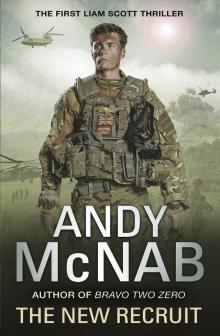 The New Recruit
The New Recruit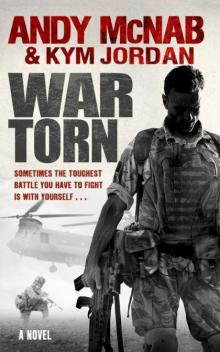 War Torn
War Torn Brute Force
Brute Force Crossfire
Crossfire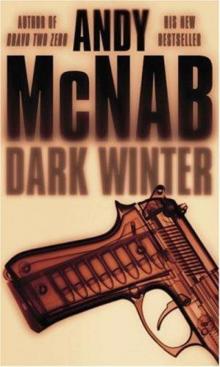 Dark Winter ns-6
Dark Winter ns-6 The Grey Man
The Grey Man Spoken from the Front
Spoken from the Front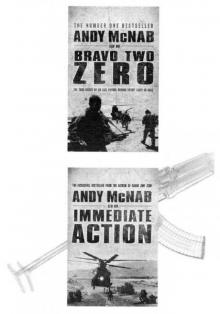 Meltdown
Meltdown Recoil
Recoil Nick Stone 1 - Remote Control.
Nick Stone 1 - Remote Control.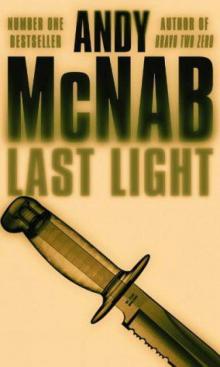 Last Light ns-4
Last Light ns-4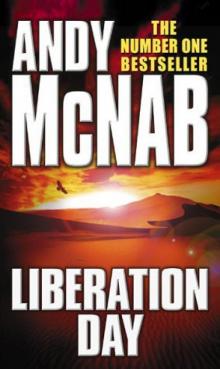 Liberation day
Liberation day Deep Black
Deep Black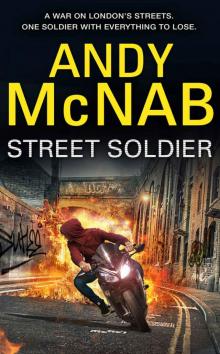 Street Soldier
Street Soldier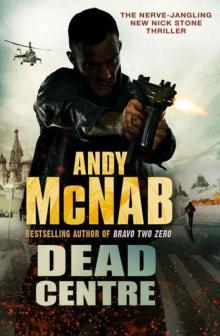 Dead Centre ns-14
Dead Centre ns-14 Exit wound ns-12
Exit wound ns-12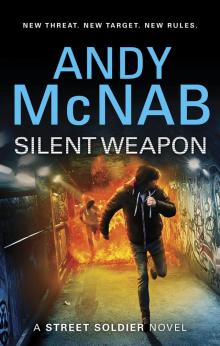 Silent Weapon
Silent Weapon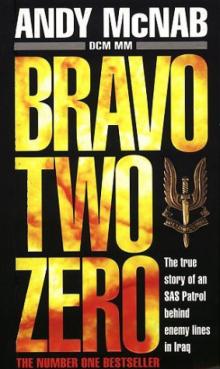 Bravo two zero
Bravo two zero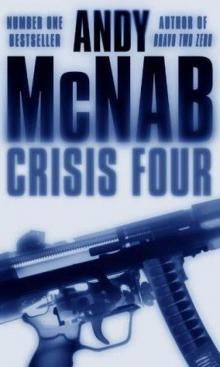 Crisis Four ns-2
Crisis Four ns-2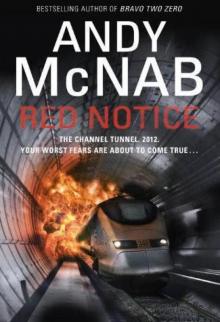 Red Notice
Red Notice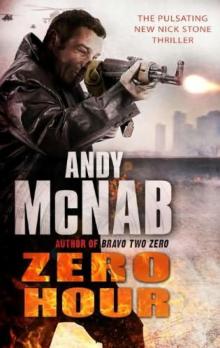 NS13 Zero Hour
NS13 Zero Hour Firewall
Firewall Last Light
Last Light Aggressor
Aggressor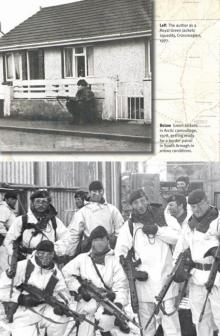 Seven Troop
Seven Troop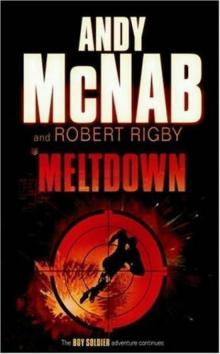 Meltdown bs-4
Meltdown bs-4 The Grey Man (quick reads)
The Grey Man (quick reads)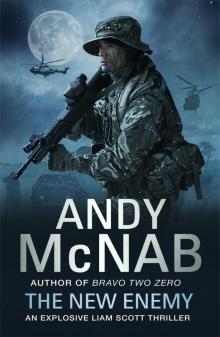 The New Enemy
The New Enemy Avenger
Avenger FireWall ns-3
FireWall ns-3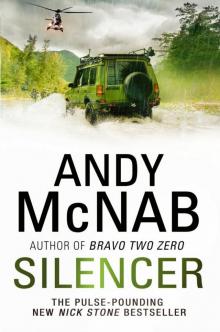 Silencer
Silencer Last Night-Another Soldier…
Last Night-Another Soldier…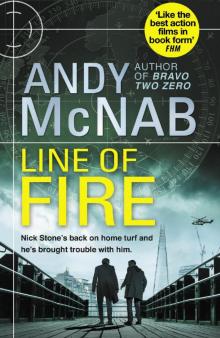 Line of Fire:
Line of Fire: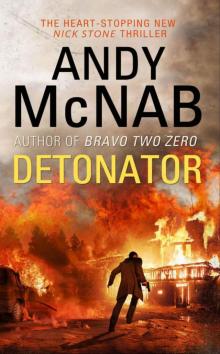 Detonator
Detonator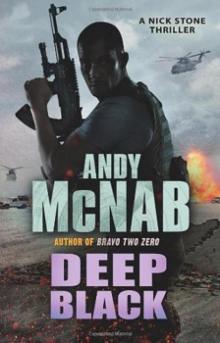 Deep Black ns-7
Deep Black ns-7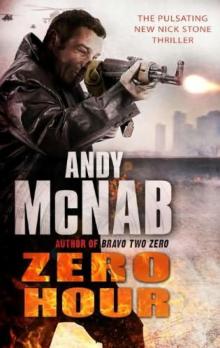 Zero Hour (2010) ns-13
Zero Hour (2010) ns-13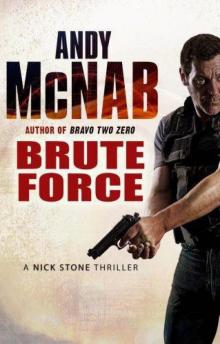 Brute Force ns-11
Brute Force ns-11 Cold Blood
Cold Blood Terminal Velocity
Terminal Velocity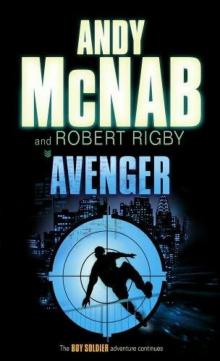 Avenger bs-3
Avenger bs-3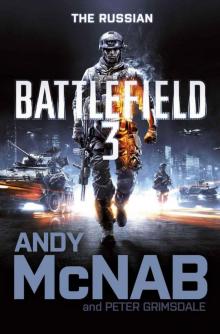 Battlefield 3: The Russian
Battlefield 3: The Russian DropZone
DropZone Zero Hour
Zero Hour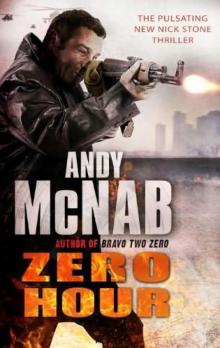 NS13 Zero Hour (2010)
NS13 Zero Hour (2010)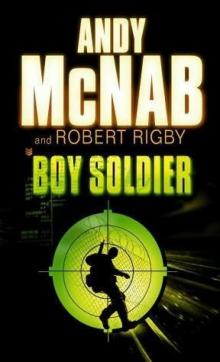 Boy soldier bs-1
Boy soldier bs-1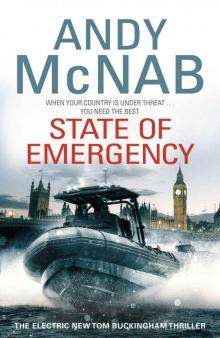 State Of Emergency: (Tom Buckingham Thriller 3)
State Of Emergency: (Tom Buckingham Thriller 3)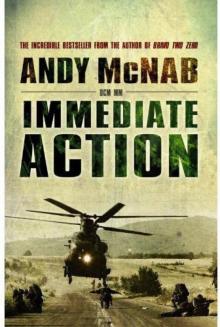 Immediate Action
Immediate Action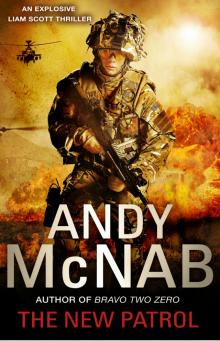 The New Patrol
The New Patrol Crisis Four
Crisis Four Boy Soldier
Boy Soldier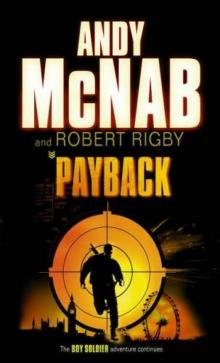 Payback bs-2
Payback bs-2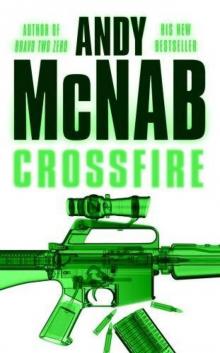 Crossfire ns-10
Crossfire ns-10 Today Everything Changes: Quick Read
Today Everything Changes: Quick Read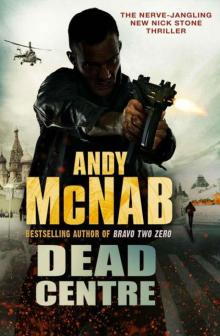 Dead Centre
Dead Centre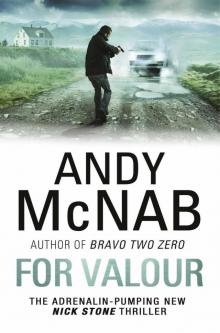 For Valour
For Valour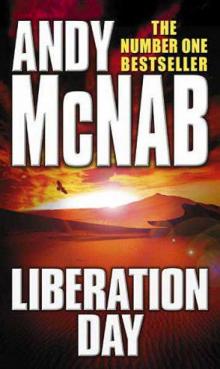 Liberation Day ns-5
Liberation Day ns-5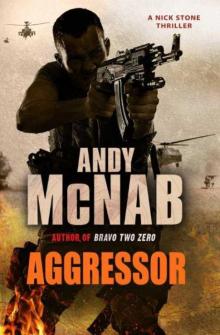 Aggressor ns-8
Aggressor ns-8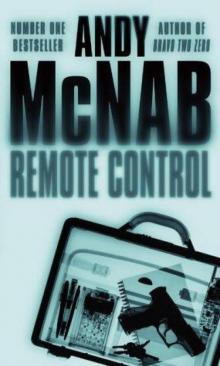 Remote Control ns-1
Remote Control ns-1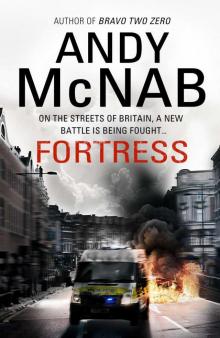 Fortress
Fortress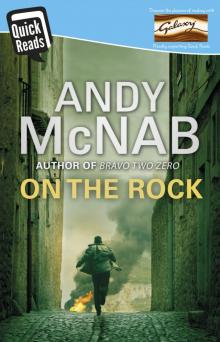 On the Rock
On the Rock Dark Winter
Dark Winter